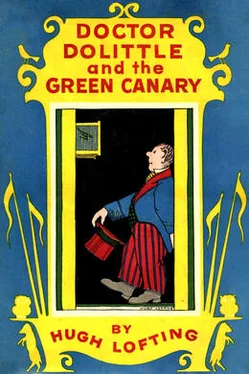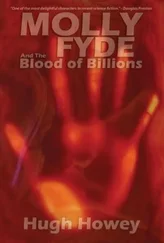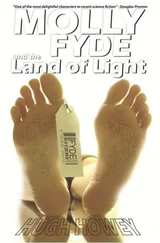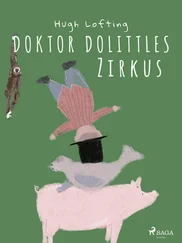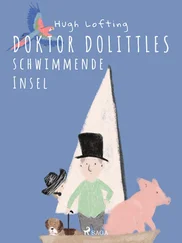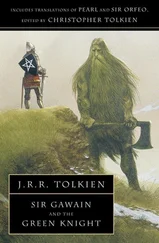'After he had come near to a farmhouse he hid my cage under a hedge and went forward to the door to ask for food for himself. Evidently the farmer's wife took pity on his haggard and hungry looks and gave him a good, square meal of bread and cold meat. He brought back a small crust when he came to fetch me and stuck it into the bars of my cage. It was good home–made bread and I could have eaten two more of the same size.
'So, both of us fortified with food, we set out to do the ten miles to the mining town that we eventually reached. It was a pleasant, sunny morning. And something of the sadness with which the grim night had weighed me down left my spirits as the man strode forward in the fresh early air, with my cage beneath his arm. He, too, seemed in cheerier mood. We were now upon a main highway running North and South. Wagons and carriages passed us occasionally, going either way. I hoped that one of these would offer us a lift, because travelling in a cage under a man's arm is not the most comfortable kind of journeying by a great deal. And, sure enough, after we had tramped along for about half an hour, the driver of a covered cart—a sort of general grocer's wagon—stopped and asked if we would like a lift. He was evidently going to the town we were bound for and I was delighted when my man put me in the back among the groceries and got up himself beside the driver.
'As it happened, my cage had been placed right next to a picket of oatmeal. I smelled it through the paper bag. It didn't take more than a moment for me to peck a hole through the covering, and I helped myself to a thimbleful of the grocer's wares. I felt rather mean doing it to the man who was giving us a free ride. But it was only a very little I took—not enough for anyone to miss—and I hadn't tasted food except for the crumb of bread for over twenty–four hours.
'My man chatted with the grocer as we drove. I gathered from the conversation that he had a brother, who was also a miner at this town we were coming to. Apparently it was his intention to stay at his house, if there was room, till he got a job in the mines.
'If I had known,' Pippinella continued in rather a sadly reminiscent voice, 'what sort of life I was coming to I wouldn't have been half as cheerful over that journey in spite of the nice, fresh morning. I had for some time now been among miners. But I didn't yet know anything what ever of their homes, their lives or their work.'
'THE first impression that I got of the town as we approached it was anything but encouraging. As I have said, there had been no rioting here and work was proceeding as usual. For more than a mile outside all the grass and trees seemed sick and dirty. The sky over the town was murky with smoke from the tall chimneys and foundries and factories. In every spare piece of ground, instead of a statue or a fountain or a garden, there was a messy pile of cinders, scrap iron, or furnace slag. I wondered why men did this; it did not seem to me that all the coal and all the steel in the world was worth it—ruining the landscape in this way.
'And they didn't seem any happier for it. I looked at their faces as we passed them, trudging down the streets to work in the early morning. Their clothes were all black and sooty, their faces pale and cheerless. They carried little tin boxes which contained their lunches, to be eaten in the mines or at the factory benches.
'In the middle of the town my man got down from the cart, took me out and thanked the driver for his ride. Then he went off through some narrow streets, where all the houses seemed alike—plain, ugly red brick—and finally knocked on a door.
'A pale–faced untidy woman answered it, with three dirty children clinging to her skirts. She greeted him and invited him to come in. We passed to the back of the house into a small kitchen. The whole place smelled terribly of stale cooking. The woman went on with washing some clothes, at which she had evidently been interrupted, and the man sat down and talked with her. In the meantime the children poked their jammy fingers through the bars of my cage, which had been placed upon the table among a lot of dirty dishes. I was afraid they were going to upset it while the man was busy talking, so I pecked one on the hand, just slightly, to warm him to be careful. He immediately burst into howls. Then my cage was taken and hung up in the window, where I got an elegant view of two dust–bins and a brick wall.
'"Good Lord," I thought to myself, "is this what I've come to? Such a home! What a life!"
'In the evening the brother returned from work, covered with coal grit, tired and weary. He washed his face in the kitchen sink while the newcomer told him how he had left his own town and journeyed hither, seeking work. The brother said he would speak to the foreman and try to get him a job in the same mine he worked in.
'Then they had supper. Ordinarily the cheerful noise of knives and forks and dishes would have made me sing. It always did in the castle, when the marchioness took her meals with me in the little tower room. And so it did with the soldiers when they all sat around my baggage cart and rattled their dishes and ate stew with a hissing noise like horses. But somehow, here in this squalid, smelly room, among these tired, dirty people, I just couldn't sing. I felt almost as though I'd never be able to sing again.
'And after the woman had put some broken rice and breadcrumbs into my seed–trough I ate a little, put my head under my wing to shut out the picture of that wretched room and miserably went to sleep.
'Well, my man got his job. And two days later he started out with his brother to go to work in the morning; and he returned with him in the evening. And, supposing that I was going to be here for some time I tried to settle down and take an interest in the household and in the family. But I found it very hard work. Their conversation was so dull, what there was of it. In the morning the men got up, leaving only time enough to gobble their breakfast and rush off to work. In the evening the poor fellows were so tired that they went to bed almost immediately supper was over. And in between all I had to listen to was the children bawling and the woman scolding them.
'Many a time I'd say to myself, "Look here, my girl, this won't do. You must cheer up. Laugh at your troubles and sing a song."
'And then I'd throw my head back and try to fool myself that I was out in the green woods, all merry and bright. But before I'd sing more than two notes one of the brats would start crying or the harassed mother would interrupt with some complaint. It was no use. I just couldn't sing in that house.
'After I'd been there a week I gathered from the conversation of the men one evening that I was going to be taken somewhere the following day. I was delighted. For I thought to myself that, no matter where it was, the change couldn't be for the worse.
'But I was wrong. Where do you suppose I was taken? You could never guess. I was taken down into the coal–mine. I didn't know at the time that it was customary to keep canaries in coal–mines. It seems that there is a very dangerous kind of gas, called coal damp, that sometimes comes out underground and kills the men working there if they are not warned in time to escape. The idea of having canaries down there is, apparently, that the birds being higher up than the men—hung on the walls of the passages—will get the gas first. Then if the birds start to suffocate the men are warned that it is time to get out of the mine. While the canaries are lively and hopping about they know it's all right.
'Well, I had never seen the inside of a coal–mine before. And I hope I never will again. Of all the dreadful places to work and live I think that must be the worst. My cage was taken by my owner and his brother the next morning, and he walked a good mile before we came to the mouth of the pit. Then we got into a sort of a big box with a rope to it. And wheels began to turn and we went down and down and down and down. The sun could not be seen. For light the men had little lamps fastened to their hats. The box stopped and we got out and went along a long, narrow passage which had little rails with wagons on them, running the length of it. Into these little wagons the coal was put, a long way back in the inside of the mine. Then it wa trundled along till it came to the big shaft, where the sliding box, or lift, took it up to the top.
Читать дальше
